Let’s start with a lovely release. The titmouse was rarin’ to go and flew away in a flurry of feathers when the weather finally cooperated last week. I love releases!
I wish I could say this was a rare occurrence, but sadly, every rehabber I know across the globe can recount similar tales on an ongoing basis—and yet people wonder why our patience is thin to nonexistent and why the burnout rate is so high among rehabbers.
Many of you already know this, but for newcomers, lemme give ya a quick overview of a rehabber’s situation:
1) We’re trained, licensed professionals who generally receive no salary and are not allowed by the terms of our permits to solicit donations as individuals. There are exceptions to the “no salary” rule; in larger cities some rehab/wildlife centers do have paid staff, but the vast majority of rehabbers around the nation are home-based, single-person operations—and unpaid. Some of us form 501(c)(3)s, like Laurens Wildlife Rescue, so that we can legally fund-raise through the non-profit to help offset the cost of rehabbing these critters, and our donors get a tax break.
2) We must conduct ourselves professionally even when abused, slandered and libeled, because not only OUR reputation but that of every other rehabber in the world is at stake.
3) In the US, the terms of our permits mean that the state and, in the case of those of us who are federally permitted, the federal wildlife agencies can come to our door at any reasonable hour and conduct an inspection of our facilities and paperwork—with no prior warning.
4) We deal with a public that is largely ignorant of the laws regarding possession of wildlife. Many people assume that unless the mammal or bird is on an endangered list, it’s perfectly legal to keep it. IT’S NOT. Here’s what the Georgia DNR has to say on the issue: http://www.georgiawildlife.com/NativeWildlifeLaws. And here’s what US Fish & Wildlife says: http://www.fws.gov/migratorybirds/RegulationsPolicies/mbta/mbtintro.html. While the FWS link has a further link on that page to the complete list of federally protected birds, let me give you the Cliff’s Notes version: pretty much everything with feathers is protected. When in doubt, contact a rehabber.
5) We sacrifice time, money, sleep, health and social lives, often putting in 20-hour days, because of our passion for wildlife, not because of our love for people. Most of us are definitely NOT people persons and will tell you so in a heartbeat. We’d be delighted if we could help the wildlife without having to deal with the public at all. And remember that most of us also have full-time paying jobs and families to care for.
6) We must keep records on every single critter we receive, because the state and, for us federally licensed folks, the feds require annual reports detailing how many critters we received, where they came from, why we got ‘em, what we did for ‘em and what the final outcome was. Failure to file these reports means loss of our permits.
7) In addition to THAT paperwork, those of us with non-profits must remember to pay the incorporation fees and file our non-profit’s taxes so our organization can keep its tax-exempt status, as well as publish newsletters or maintain websites and blogs and a social media presence, again to retain our tax-exempt status.
8) We TRY to educate people, formally and informally. In formal settings, like educational programs and blogs, we generally get a decent reception. In informal settings…well, see above.
9) While the general public image of wildlife rehab is of a Disneyfied situation where we play with, cuddle and coo to healthy, happy critters, who then hang around us as our friends forever, the reality is that about half the wildlife we receive will die or require euthanasia as a result of injuries or illness. It takes a mighty strong stomach to be a rehabber; we see horrendous injuries. Further, a good 95% of the wildlife we receive is a result, direct or indirect, of human activity: hit by vehicle; victim of free-roaming cats or dogs; poisoned; caught in leg-hold or sticky traps; tree felled or limbs trimmed without checking first for bird or squirrel nests; kidnapped fawns and fledgling birds…None of the wildlife WANTS to be with us and, in the case of raptors, can often be downright dangerous. Furthermore, we handle the wildlife under our care as little as possible; there is no “playing with” the critters. If we imprint an animal, our screw-up can cost us our permits, and even if that weren’t the case, our goal is the successful rehabilitation and release of that critter back into the wild where it belongs.
10) We don’t rehab because it’s “fun.” It’s expensive; it’s exhausting, and it’s all too often emotionally devastating. The expense, the public abuse and the stress frequently combine to lead rehabbers to leave the profession. Most never return, finding that they like sleeping a full eight hours at night, being able to go on holiday or make plans with friends and family, and actually having a little money at the end of the month.
So if that’s what wildlife rehab is like, why do we do it? For a number of reasons, but they can probably all be boiled down to this: It’s our small way of compensating for man’s ongoing damage to the environment. Yes, the vast majority of the wildlife we work with are so numerous they’re considered “common” and not at risk; we like to think our paltry efforts, scattered across the globe, keep it that way. There’s an immense feeling of satisfaction when a bird, mammal, or reptile you worked your butt off to save can finally be released. There’s great joy in watching a hatchling bird mature to the point of release and fly into the sky to join others of his species. There’s grim acknowledgement that if you can’t do anything else for a suffering critter, you can humanely end its suffering. And when you explain to a caller how to reunite babies with their parents without requiring a rehabber’s intervention, and they call back to delightedly report that they witnessed the reunion, there’s an amazing sense of accomplishment.
Perhaps this poster from my South Carolina colleagues at PAWS sums it up best:
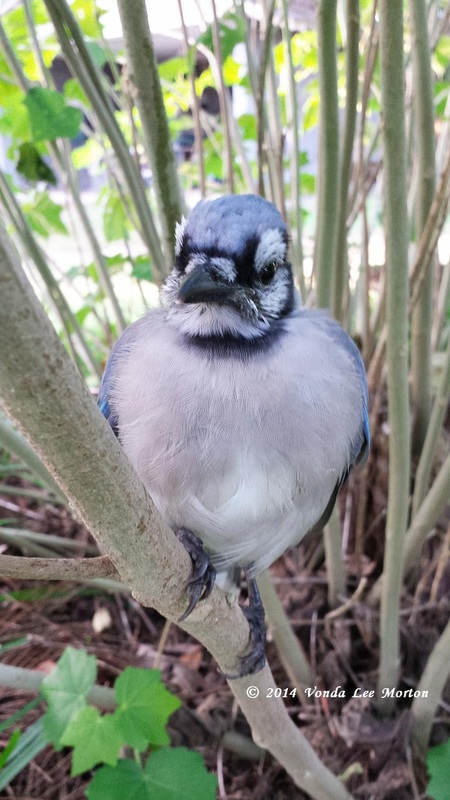
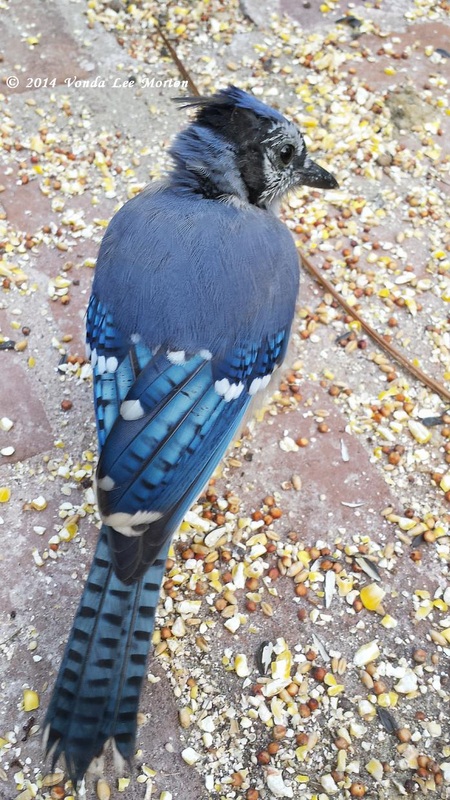
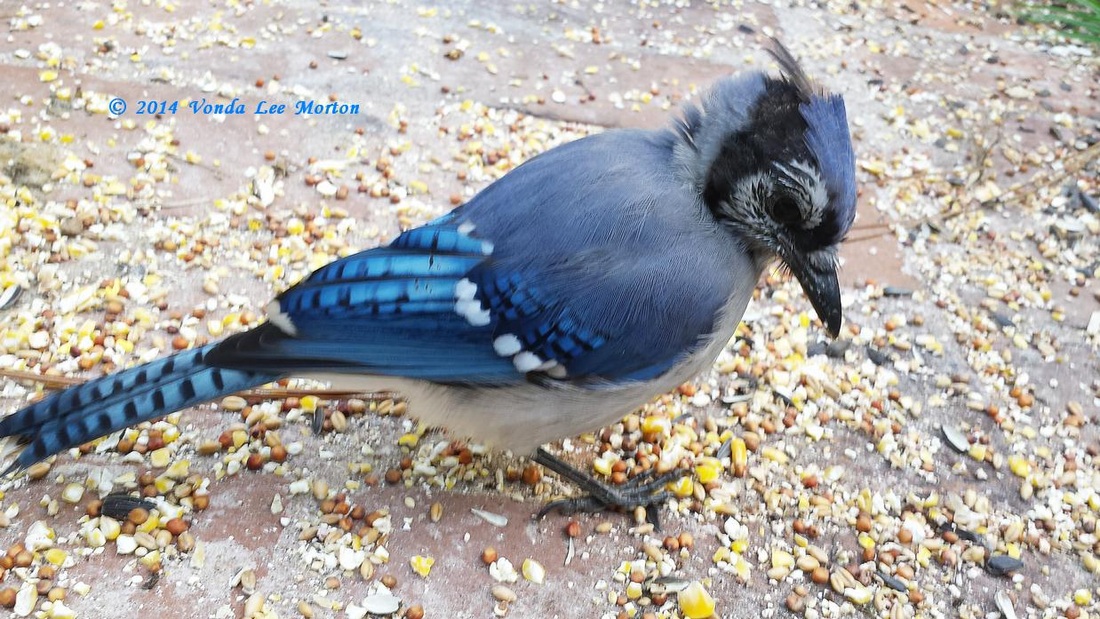
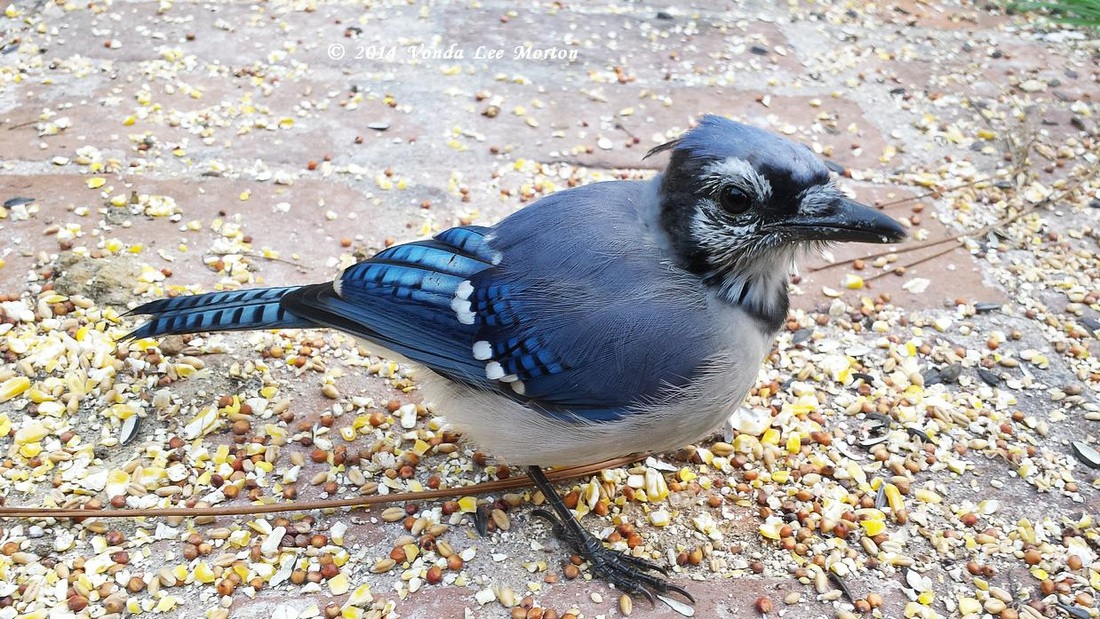
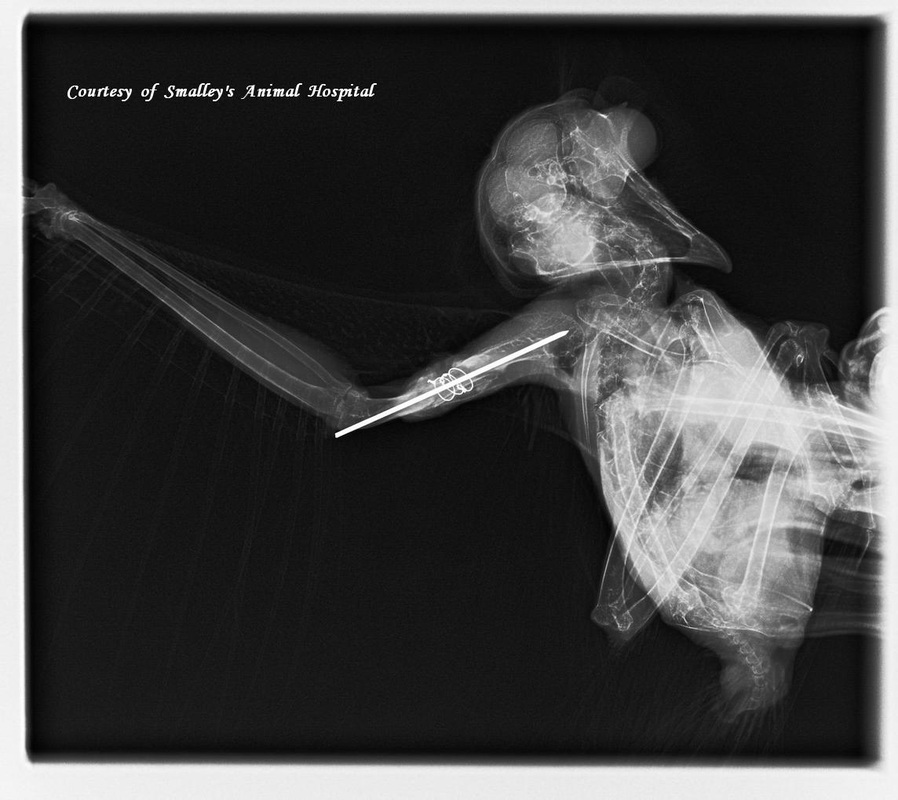
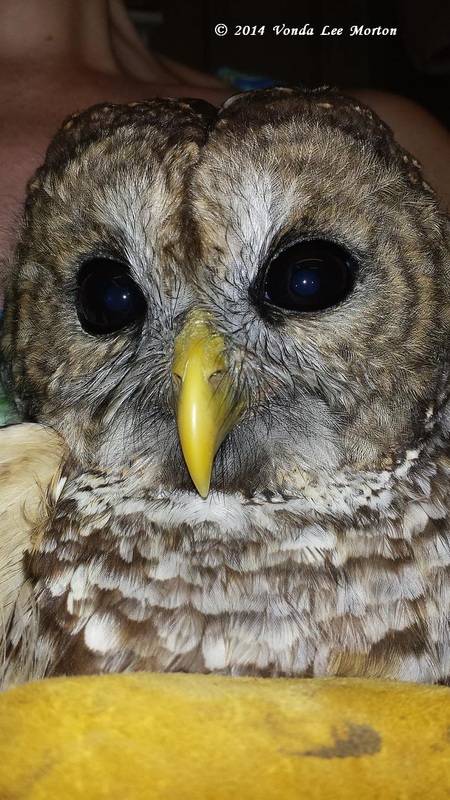
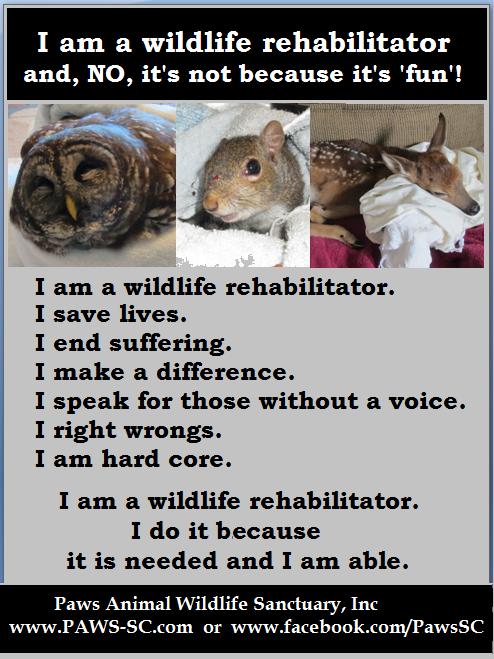
 RSS Feed
RSS Feed
